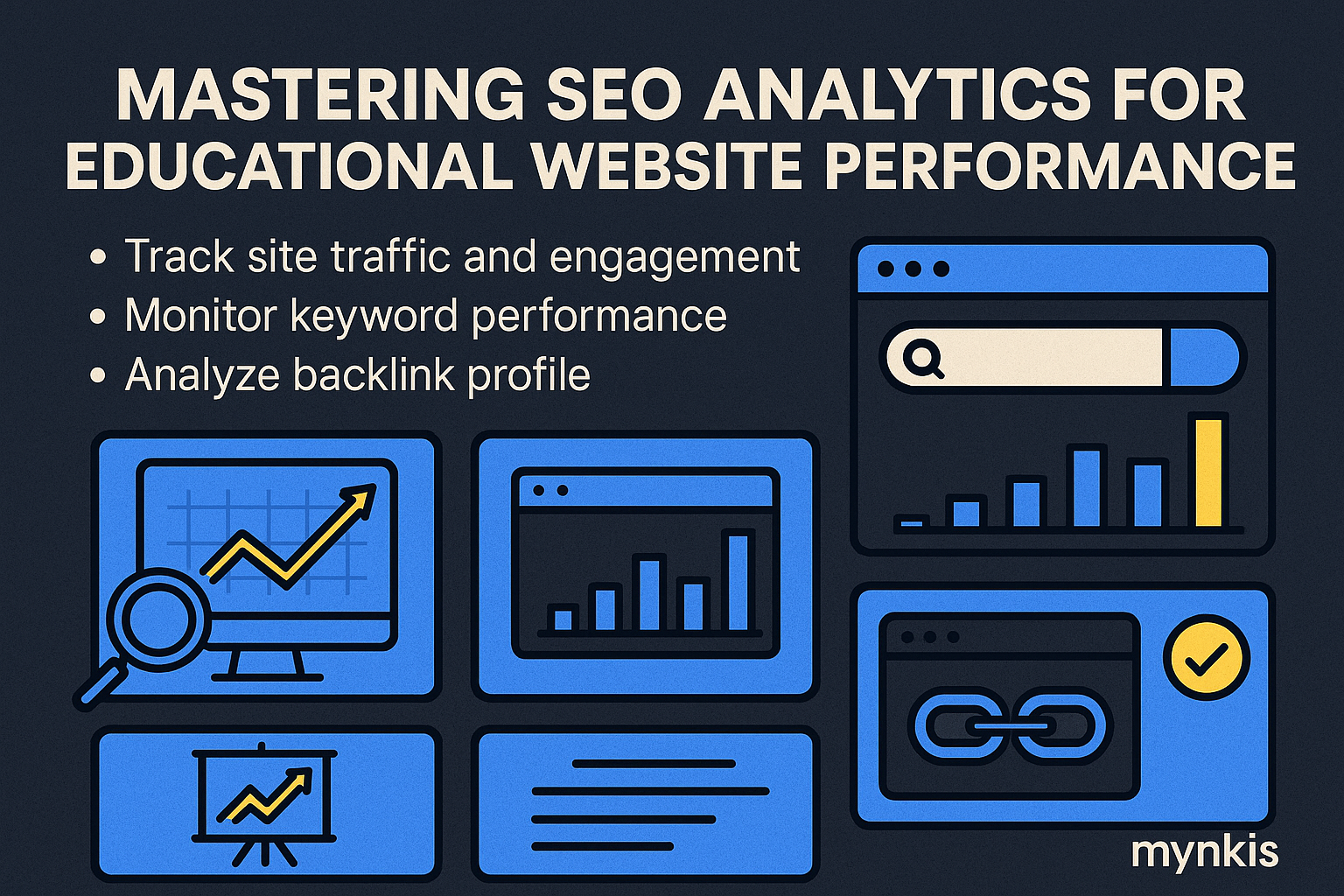Schedule a Demo
SEO analytics involves the collection, reporting, and analysis of data from search engine performance. For schools and universities, this means understanding how well your custom learning management system or website is engaging with users and, more importantly, how visible it is to search engines. By diving into metrics such as organic traffic, keyword rankings, and backlink quality, you can gain insights into user behavior and optimize your online presence.
In the competitive educational landscape, visibility matters immensely. When I've worked with educational institutions, I've seen firsthand how effective SEO can attract a higher volume of prospective students and partners. By leveraging SEO analytics, you're not just improving your website's performance; you're enhancing your institution's reach and impact. Remember, in the realm of education, SEO is a strategic investment that empowers your digital outreach.
Organic Traffic: This is the lifeblood of your SEO strategy. Monitoring the number of visitors arriving through search engines gives you a direct view of your visibility and SEO effectiveness. A rise in organic traffic often signals successful SEO optimization and targeted content marketing efforts.
Keyword Rankings: Knowing where your keywords rank in search engine results pages is crucial. According to Moz, a leading SEO tool, aiming for the top three positions is vital as these spots account for a significant share of clicks (Source: Moz's 2021 Report). Target keywords that align with your educational programs and services to boost relevant traffic.
Click-Through Rate (CTR): Your title tags and meta descriptions greatly influence your CTR. As noted by Ahrefs, well-optimized titles and descriptions can significantly improve user interaction and draw more organic traffic to your site (Ahrefs).
Bounce Rate: A high bounce rate might indicate that your content isn't aligning with what users expect to see or that the user experience is lacking. By analyzing bounce rate data, you can refine your web design and content to enhance engagement.
Conversion Rate: Beyond attracting visitors, the ultimate goal is to convert them into students or valuable stakeholders. Tracking conversions from your website's entry points can help refine your user journey.
While a multitude of tools exist, selecting the right ones depends on your specific needs and budget. Google Analytics remains a go-to solution, offering extensive insights into user behavior and site performance. Integrating Google Search Console further enhances your ability to monitor and optimize keyword performance.
For more advanced analytics, consider platforms like SEMrush or Ahrefs. I often recommend these to educational clients looking to dive deeper into competitive analysis and detailed keyword tracking. They provide robust data that helps schools not just measure but actively improve their SEO strategies.
Content Optimization: It all begins with quality content. Ensure your articles, course descriptions, and landing pages are rich with relevant keywords and structured with SEO best practices in mind. Content should provide value, be easy to read, and meet the user's intent.
Technical SEO: Often overlooked, technical SEO includes site speed, mobile responsiveness, and site architecture. Enhance your site's structure with proper use of HTML tags and maintain a clean, efficient backend to boost your search engine rankings.
Link Building: Establishing backlinks from reputable educational and industry sources can profoundly impact your site's authority. Collaborate with other institutions or authoritative publications to secure these valuable links.
Local SEO: For schools targeting local students, optimizing for local search is crucial. This includes managing your Google My Business listing, targeting local keywords, and ensuring your NAP (Name, Address, Phone number) is consistent across platforms.
User experience (UX) directly influences your SEO performance. Websites that load quickly, are easy to navigate, and present content in a digestible format tend to rank higher. Through tools like Google's PageSpeed Insights, you can measure load times and make necessary improvements. Remember, a happy user is more likely to stay longer and explore more of your site, contributing to better engagement metrics and lower bounce rates.
To assess the effectiveness of your SEO strategy, establish clear KPIs (Key Performance Indicators) from the outset. Whether it's an increase in organic traffic, higher keyword rankings, or improved engagement rates, these metrics help you track progress and adjust strategies as needed. The journey of optimizing a website for search engines is ongoing, requiring consistent monitoring and adaptation to the latest algorithms and trends.
The world of SEO is ever-evolving. Keeping an eye on trends like voice search optimization, the importance of AI in search algorithms, and the increasing prevalence of video content can keep your educational site ahead of the curve. In my experience, staying agile and informed about these trends allows schools to not just keep up, but set the pace in their online visibility and student attraction efforts.
Finally, view SEO as part of a broader digital strategy. It's not just about technical tweaks but integrating SEO with content marketing, social media engagement, and user experience design. By taking this holistic approach, your institution can create a more cohesive and impactful online presence, ensuring that every effort contributes to building your brand and drawing in the right audience.
Based on available research, individual results may vary when implementing these SEO strategies. It's important to consistently monitor, adjust, and tailor your approach to your specific educational context to achieve the best outcomes.
